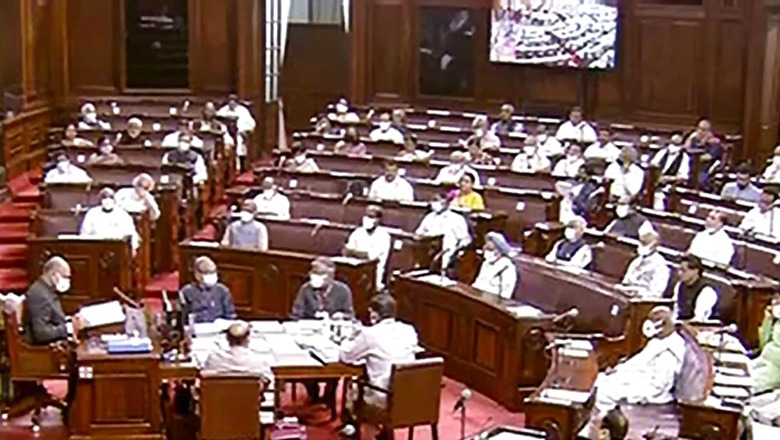
views
The government has increased the education budget for this financial year. For the first time the education budget has crossed Rs 1 lakh crore, Rajya Sabha was informed on Wednesday. Replying to queries during the question hour in the Upper House, Minister of State for Education, Subhas Sarkar said that the 15th Finance Commission provided a grant of Rs 6,143 crore for online learning and development of professional courses besides other grants.
“This is the first-time in education (sector), the budget has crossed Rs 1 lakh crore,” he said in response to a supplementary question by CPI(M)’s Jharna Das Baidya on the Union budget announcements regarding increase in investment in the sector.
Replying to another supplementary question on what are the recommendations of the 15th Finance Commission on education sector, Sarkar said, “A grant of Rs 4,800 crore, and to incentivise six states, each year (there will be) Rs 200 crore incentive per year per state, and also a grant of Rs 6,143 crore for online learning and development of professional courses. These are for incentivising our education field.”
Responding to Baidya’s question on whether any time limit has been fixed to achieve the target of GDP allocation for education, Union Education Minister Dharmendra Pradhan said, “The Centre and states work together to increase the public investment in education sector to reach six per cent of Gross Domestic Product (GDP) at the earliest.” Ram Gopal Yadav (SP) also asked how long will the government take to meet the target of increasing public investment on education as a percentage of GDP to six per cent, considering it has increased from 4.07 per cent of GDP (states and Centre combined) to 4.32 per cent in five years.
Although Sarkar did not give a specific response, he said the government has increased spending on education significantly. “As a percentage of GDP, we are much higher than China if we consider the BRICS countries,” he said, adding that this year, the government would achieve in a much better way within a short time through the participation of state, Centre and public.
Replying to a question on how much importance has been given to regional languages in the National Education Policy (NEP), or whether regional languages would be introduced up to the university-level by P Bhattacharya (Congress), Pradhan said giving importance to local language and mother tongue is one of the primary strategies of NEP.
The policy has given utmost importance to promoting critical thinking in school or higher education by making a student learn in a language that she or he is most comfortable with, which is known as the mother tongue or local language. “AICTE has already started translating engineering course books to respective languages in some parts of southern India, some parts of western India and some parts of eastern India… Also, already 14 institutions have started teaching in local language. Local language has to be given priority,” he said.
Pradhan also said the entire focus of NEP and Samagra Shiksha is for improvement of quality of education where dropout ratio will be reduced and PM Poshan Abhiyan is also an ambitious programme in that direction. “Upgradation of education quality, teachers education quality, all these we are very much focussed on, in consultation with the states. We are committed to improve the quality of teaching and learning process up to the 21st century expectations,” he said.
Read all the Latest Education News and Breaking News here


















Comments
0 comment